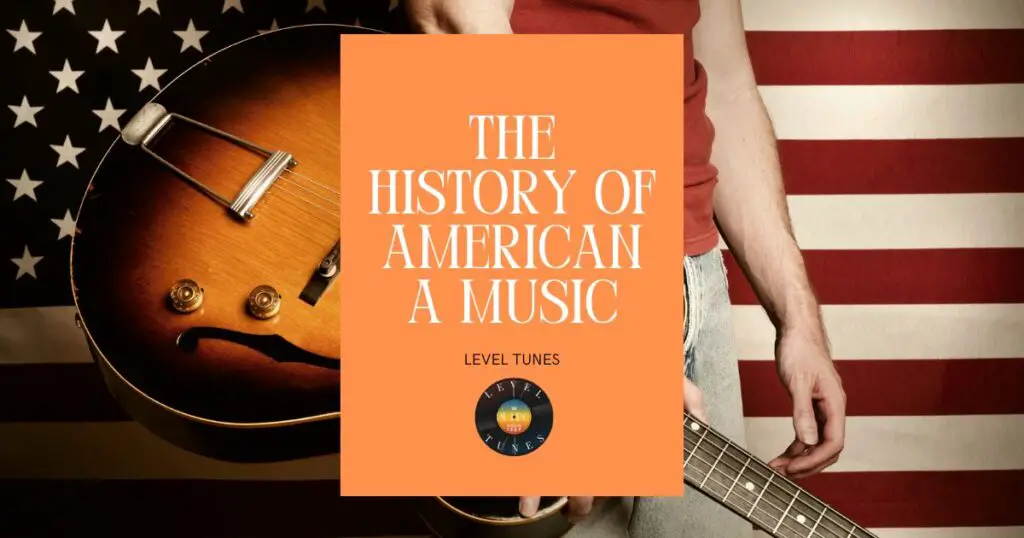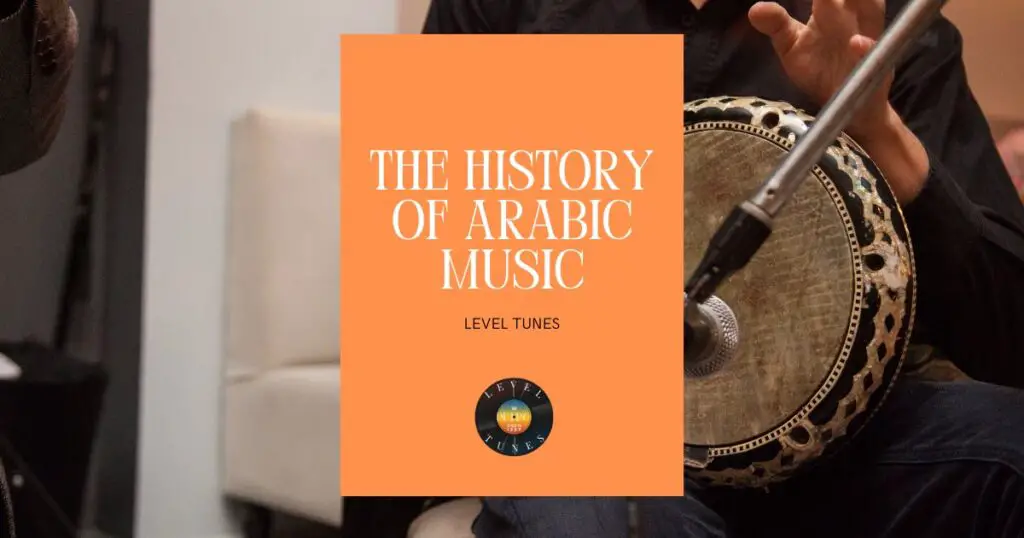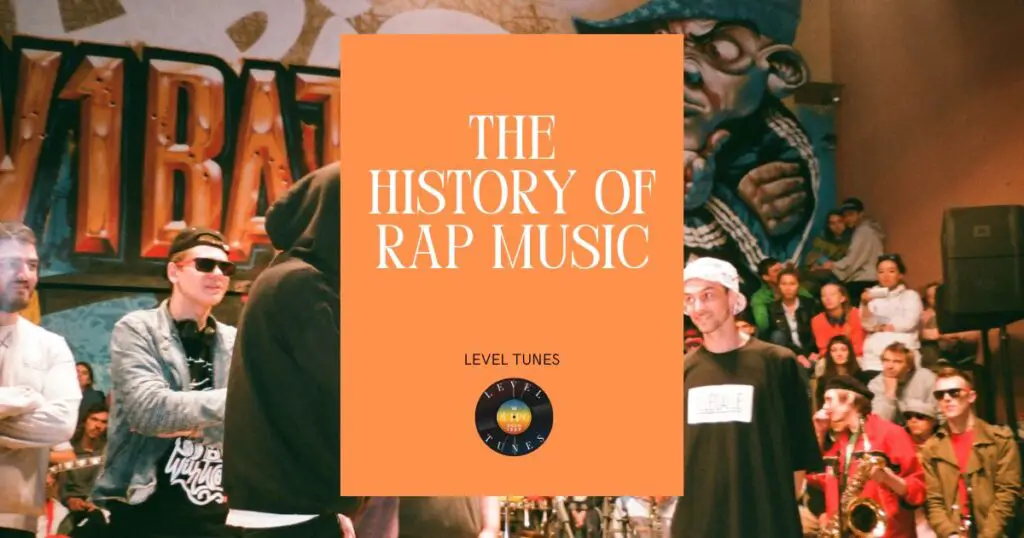Welcome to a captivating journey through the rich history of Americana music, an eclectic genre deeply rooted in the cultural fabric of the United States.
From its early beginnings in folk and blues to its evolution into a powerful force shaping modern indie and alternative scenes, Americana music has continuously adapted while staying true to its authentic essence.
So come along as we explore this captivating tapestry of musical influences, sounds, and stories that have shaped one of America’s most cherished art forms.
Key Takeaways
- Americana music is a rich genre that evolved from folk and blues, infused with elements of country, rock and roll, and other musical traditions. It encompasses diverse styles such as bluegrass, honkytonk, outlaw country, alternative country, and more.
- Influential figures like Elvis Presley and Sun Records helped shape the sound of Americana by infusing bluesy guitar riffs into the mix. The British Invasion in the mid-1960s internationalized rock and roll while promoting new sounds inspired by American roots music.
- Outlaw Country emerged as a rejection of mainstream Nashville conventions in favor of raw authenticity championed by Waylon Jennings and Willie Nelson. Meanwhile, alternative country throughout the 1980s brought fresh energy to traditional genres through innovative experimentation across various styles.

Roots Of Americana Music
The development of folk music in England, Scotland, and Ireland laid the groundwork for Americana music, while blues music from African American communities and country music from rural areas influenced its evolution.
The Development Of Folk Music
The development of folk music has played a crucial role in shaping the sound and essence of Americana music. As one of its main influences, folk music’s organic nature helped define what would eventually encompass various American roots styles like country, roots-rock, bluegrass, R&B, and more.
Delving into the history of folk music reveals a blend of musical genres brought to life by different communities such as Native Americans, Mexican-Americans, Cajuns and even those with Celtic backgrounds.
Each community contributed unique elements to the ever-evolving genre which laid the foundation for future artists who embraced storytelling and lyricism within their work.
For instance, Woody Guthrie’s powerful words captured poignant aspects of daily life while Pete Seeger strove to preserve traditional songs from all corners of America – both leaving lasting impacts on future generations in terms how they approach creating music rooted in tradition yet imbued with relevance across timeframes.
Influence Of Blues Music
The profound influence of blues music on the Americana genre cannot be overstated. As one of the foundational roots of Americana, blues music emerged in the early 20th century and quickly became known for its melancholic themes and somber sounds.
Incorporating elements of folk, country, bluegrass, gospel, singer-songwriter and indie rock into its unique soundscapes, Americana borrowed heavily from blues music to create a rich tapestry that intertwined different aspects of American culture.
Iconic artists such as Muddy Waters, Bessie Smith and Robert Johnson played a vital role in shaping modern-day Americana by infusing their soul-stirring lyrics with striking instrumentals like expressive guitar riffs.
Emergence Of Country Music
The emergence of country music played a pivotal role in the development of Americana music. As a genre deeply rooted in folk and blues, country music brought rural American culture to the forefront in the early 20th century.
One fascinating anecdote from this era is how rural southern Appalachia became home to some of the earliest stars of country music. Artists like Jimmie Rodgers and The Carter Family embraced their roots by incorporating old-time melodies into their songs.
This infusion of traditional musical elements served to reflect the spirit of American life, forging an authentic identity within popular culture at large.
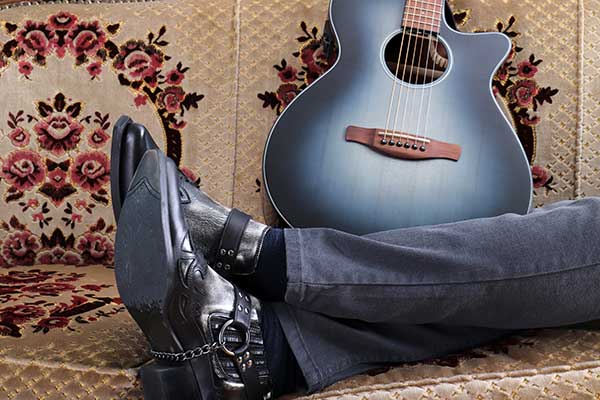
The Rise Of Country Music
The Grand Ole Opry was established, becoming a hub for country music artists and providing a platform for their performances.
Establishment Of The Grand Ole Opry
The Grand Ole Opry is a cornerstone in the history of Americana music. It all started back in 1925 when the WSM radio station launched its first-ever live country-music variety show, which was initially called “WSM Barn Dance”.
From there, it evolved into something much larger and more significant – The Grand Ole Opry. The weekly broadcasted stage show has become an institution of country music showcasing new talent as well as established artists over nine decades on air.
Every week, thousands of fans from around the world attend the shows at Nashville’s Ryman Auditorium or the Grand Ole Opry House to see their favorite musicians perform live.
Country Music In The 1950s And 60s
In the 1950s and 60s, country music reached new heights of commercial success. Artists like Patsy Cline, Hank Williams, and Johnny Cash sold millions of records and played to packed arenas across the United States.
The Nashville sound emerged during this time—a polished production style influenced by pop music that appealed to a wider audience.
The era also saw the emergence of subgenres like honkytonk, western swing, bluegrass, and outlaw country. These styles often focused on storytelling and were more closely aligned with traditional roots music than their Nashville counterparts.
Despite its commercial peak in the late ’50s – early ’60s country continued thriving throughout the decade with emerging acts such as Loretta Lynn releasing hits after hits in songs rich with stories about everyday life experiences rural America could relate too which signaled a shift back towards more authentic sounds reflecting down-to-earth songwriting that rebelled against Nashville’s “countrypolitan” approach.”

The Emergence Of Rock And Roll
Rock and roll emerged as a new genre in the 1950s, with artists such as Elvis Presley and Chuck Berry pioneering the sound.
Elvis Presley And Sun Records
Elvis Presley’s career at Sun Records is a defining moment in the history of Americana music. The King’s early recordings, including “That’s All Right” and “Blue Moon Of Kentucky,” brought together elements of blues, country, and rockabilly to create a unique sound that would define an era.
The mid-1950s saw the emergence of Sun Records as a powerhouse for talented musicians from Johnny Cash to Jerry Lee Lewis, all contributing to the evolution of rock and roll.
These artists paved the way for future generations by breaking down barriers between genres and creating something entirely new.
The influence of Sun Records continues beyond its heyday in Memphis during the 1950s; it remains an important part of our musical landscape even now. This small studio became legendary because it created such groundbreaking sounds while fostering creativity among up-and-coming musicians who would go on to become some of America’s biggest stars.
British Invasion
One of the most significant events in American popular music history is undoubtedly the British Invasion of the mid-1960s. This musical movement consisted of rock-and-roll groups from across the pond, whose popularity rapidly spread throughout the United States.
The impact of this phenomenon on popular music cannot be overstated. It internationalized the production of rock and roll, establishing Britain’s popular music industry as a dominant force alongside its American counterpart.

The Birth Of Outlaw Country
Waylon Jennings and Willie Nelson were pivotal figures in the emergence of outlaw country, a movement that rejected the polished Nashville sound and instead embraced a raw, rebellious approach to country music.
Waylon Jennings And Willie Nelson
Two of the most influential artists in the Outlaw Country subgenre were Waylon Jennings and Willie Nelson. This rebellious movement emerged in the 1970s against Nashville’s dominant music scene, which was controlled by record labels and producers.
Jennings and Nelson both embodied this ethos with their music and lifestyles. They frequently collaborated on songs together such as “Luckenbach, Texas” and “Mammas Don’t Let Your Babies Grow Up to Be Cowboys.” Jennings had an image as a bad boy due to his notorious relationship with cocaine, while Nelson sported long hair and a laid-back attitude that defied Nashville norms.
Together, they helped pave the way for a new wave of country music that celebrated individuality over conformity.
Alternative Country In The 1980s And 1990s
As the 1980s rolled around, there was a growing sense among some musicians that country music had lost its soul. In response, alternative country emerged as an attempt to reclaim the roots of traditional American music.
Alternative country began with small independent bands who sought refuge in under-the-radar venues like dive bars and honky-tonks.
By the mid-’90s, alt-country had become more inclusive and diverse than ever before. This period saw popular artists such as Uncle Tupelo (whose album “No Depression” provided the name for an entire movement), Lucinda Williams and Steve Earle rise through alt-country ranks while staying true to their own vision: revitalizing traditional genres with contemporary flair.
In conclusion, Alternative Country in the 1980s and 1990s was a movement seeking authenticity within country music by taking it back to its core traditions.

The Rise Of Roots Revivalists
As the 1980s rolled in, a group of artists rose up to bring back traditional country and folk music, paving the way for Americana’s future.
Influence On The Americana Genre
As the roots revivalists emerged in the 1990s, their influence on the Americana genre cannot be overstated. These artists were determined to bring traditional music to modern audiences and revitalize interest in older styles such as country blues, bluegrass and folk.
Roots acts like Gillian Welch, David Rawlings and Emmylou Harris drew inspiration from various genres while imbuing their sound with deeply personal lyrics that told stories about love, loss or life’s travails.
Founding Of The Americana Music Association
The Americana Music Association was founded in 1999 as a response to the growing popularity of roots music in America. This organization aimed to promote and support artists that created music that drew from various American genres, such as folk, country, blues, bluegrass, rock, and R&B.
The founding of this association led to the growth of a new field of Americana music that emphasized authenticity, tradition, and storytelling while incorporating modern musical elements.
Since its inception, the AMA has hosted an annual awards show honoring achievements in Americana music and worked diligently to provide resources for artists looking to make their mark on this diverse genre.

The Rise Of Americana Music In The 1990s
In the 1990s, artists like Emmylou Harris and Steve Earle brought Americana music to a wider audience, leading to the formation of the Americana Music Association in 1999.
The Formation Of The Americana Music Association In 1999
In 1999, the Americana Music Association was formed to advocate for American roots music around the world. This was a significant milestone in the rise of Americana music in the 1990s.
Since its inception, the Americana Music Association has organized annual festivals and conferences that bring together artists from various genres to celebrate and showcase their talents.
These events have helped establish Americana as a distinct genre with a loyal following worldwide.
The Success Of Artists Such As Emmylou Harris And Steve Earle
During the 1990s, Americana music began to gain more mainstream attention, thanks in part to artists like Emmylou Harris and Steve Earle. Both of these musicians pushed for a traditional country sound that harkened back to the genre’s roots.
Harris, who had already established herself as a successful singer-songwriter in the 70s and 80s, embraced this new movement with her album “At the Ryman”, which was recorded live at Nashville’s iconic Ryman Auditorium.
Their success proved that there was an audience hungry for authentic-sounding American music that blended elements of rock, blues and folk into something entirely unique.
The Emergence Of Alternative Country And Roots Rock
One of the defining moments in the history of Americana music was the rise of alternative country and roots rock in the 1990s. As a response to what many artists saw as an increasingly sanitized and commercialized country scene, musicians such as Uncle Tupelo, Jayhawks, Neko Case, and Ryan Adams began incorporating punk rock energy into their music while still retaining a deep appreciation for American roots music.
This genre became known as alternative country or alt-country, with some critics seeing it as a sub-genre of Americana.
For example, Son Volt’s Trace (1995) featured gritty lyrics over chiming guitar riffs that drew from blues and folk traditions while also sounding distinctively modern. Another notable artist is Lucinda Williams whose Car Wheels on a Gravel Road (1998) is often cited as one of the best albums in Americana history due to her ability to combine songs about personal experiences with influences taken from traditional genres such as blues and country.
[Keywords]: Alternative country, Roots-rock, Punk Rock Energy

Characteristics Of Americana Music
The characteristics of Americana music are its emphasis on storytelling and lyricism, the combining of traditional and modern musical elements, and the incorporation of various genres such as country, folk, blues, and rock.
Emphasis On Storytelling And Lyricism
Storytelling and lyricism are at the heart of Americana music. This genre has a rich tradition of narrative-driven songs that capture the human experience in all its complexity.
Whether it’s heartbreak, loss, or the simple joys of life, Americana’s emphasis on storytelling allows for honest and raw exploration of these themes. One great example is Johnny Cash’s “Folsom Prison Blues,” where he tells the story of a prisoner yearning for freedom – lamenting his fate with each strum on his guitar.
In Americana music, lyrics often carry strong symbolism and metaphorical meaning. Take “This Land Is Your Land” by Woody Guthrie as an example- It’s about more than just geographical boundaries; it speaks to national identity and American ideals such as democracy, equality, social justice, resilience and even dissent .
Combining Traditional And Modern Musical Elements
One of the key characteristics of Americana music is its ability to combine traditional and modern musical elements. This fusion has resulted in a unique sound that draws from different genres, including country, folk, rock and roll, and blues.
This blending of old and new can be seen throughout the history of Americana music. For example, artists like Bob Dylan introduced folk songs with social commentary against a backdrop of rock instrumentation.
Similarly, musicians like Emmylou Harris incorporated elements from traditional country music into her songs while incorporating newer sounds as well.
Incorporation Of Various Genres Such As Country, Folk, Blues, And Rock
What makes Americana music stand out is its incorporation of various genres, creating a uniquely American sound. From country to folk, blues to rock, Americana pulls from traditional and contemporary sources alike.
This fusion of different sounds is evident in many iconic Americana artists such as Johnny Cash who incorporated elements of folk and country into his music or Bob Dylan whose blend of blues and rock helped define the genre.
Even modern-day artists like Chris Stapleton have taken up this tradition with their own take on southern rock that incorporates elements of bluegrass and gospel music.
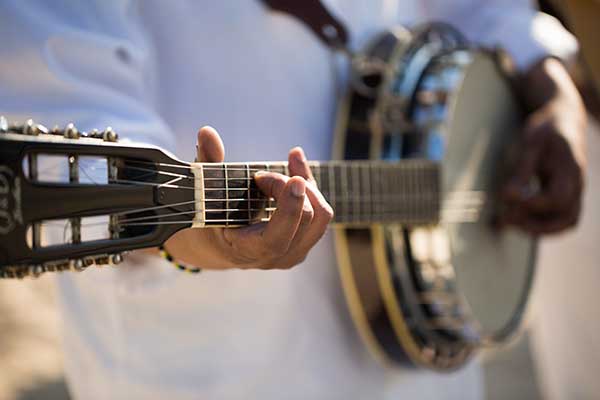
Impact Of Americana Music
Americana music has had a significant impact on contemporary indie and alternative music, revitalized traditional and roots music, and helped establish a unique American sound and identity.
Influence On Contemporary Indie And Alternative Music
Contemporary indie and alternative music have been strongly influenced by Americana music. This genre has a unique sound that draws from various musical styles such as country, folk, blues, and rock.
Many popular indie artists like Mumford & Sons, The Lumineers, and The Avett Brothers incorporate elements of Americana into their own music. Americana’s emphasis on storytelling and lyricism has also become an important aspect of modern singer-songwriter culture.
The revitalization of traditional roots music brought about by Americana is also apparent in independent musicians who are looking to find their own voice amidst mainstream posturing.
With its celebration of authenticity and tradition over commercialization, this genre resonates with listeners who yearn for a more honest approach to making art than what they get these days from many mainstream acts.
Revitalization Of Traditional And Roots Music
The revitalization of traditional and roots music is one of the biggest impacts that Americana music has had on modern music. Americana music aims to preserve and promote traditional American musical styles, including folk, country, blues, bluegrass, gospel, and more.
For instance, artists like Emmylou Harris and Steve Earle helped bring attention back to old-timey sounds in the 1990s when they emerged as prominent figures in the Americana scene.
Alongside this revival came a heightened appreciation for acoustic instruments such as banjos and fiddles – instruments that were once considered outdated but now are celebrated for their unique sound quality.
Establishment Of A Unique American Sound And Identity
One of the most significant contributions of Americana music is the establishment of a distinct and authentic American sound and identity.
The genre’s emphasis on storytelling through lyricism also adds to this sense of cultural identity– from Johnny Cash’s tales of cowboys and outlaws to Bruce Springsteen’s commentary on working-class struggles in America.
As we listen to Americana music, we can feel the spirit of not only our nation but also each region represented by its history and culture.

The Future Of Americana Music
The future of Americana music looks promising with ongoing growth and experimentation, as well as a continued fusion with genres outside the traditional realm.
Continuation Of The Growth And Evolution Of The Genre
As an Americana music enthusiast, I am excited about the continued growth and evolution of this unique genre. Since its emergence in the 1990s, Americana music has transformed from a niche interest to a thriving community with a diverse range of artists and sub-genres.
One exciting development is NYU Steinhardt’s recent announcement that Rosanne Cash, one of the most respected voices in Americana music, will be collaborating with them for their 2021-22 program.
This collaboration underscores the significance of Americana not only within the music industry but also within academic circles.
Increased Experimentation And Fusion With Other Genres
One of the most exciting aspects of Americana music is its ever-evolving sound. As the genre continues to grow, it’s clear that there will be increased experimentation and fusion with other genres.
This is already evident in artists such as The Mavericks, who incorporate elements of Latin music into their traditional country sound, or Rhiannon Giddens, who blends African American roots music with old-time string band tunes.
This evolution and incorporation of diverse influences allow for fresh interpretations of traditional styles while keeping Americana rooted in its foundational genres.
It also creates a more inclusive representation of American culture and identity.
Maintaining The Authenticity And Tradition Of Americana Music
As a lover of Americana music, it’s important to acknowledge the genre’s roots and maintain its authenticity and tradition.
One way to preserve this rich history is by attending music festivals that celebrate traditional genres like folk or bluegrass. These gatherings provide an opportunity for fans to connect with artists who embody the essence of these styles while also introducing them to new sounds and influences.
Additionally, supporting local musicians who are carrying on the tradition of Americana ensures that future generations will continue to appreciate and value this beloved genre.
Conclusion
In conclusion, the history of Americana music is a rich tapestry woven from many different musical traditions. From its roots in folk and blues to the emergence of country and rock and roll, this genre has been shaped by countless talented musicians over the years.
Today, Americana music continues to evolve and expand with new artists blending traditional styles with contemporary influences. Whether you’re a fan of bluegrass or rockabilly, gospel or Cajun, there’s something for everyone in the world of Americana music.
Thanks for reading.
TBone

